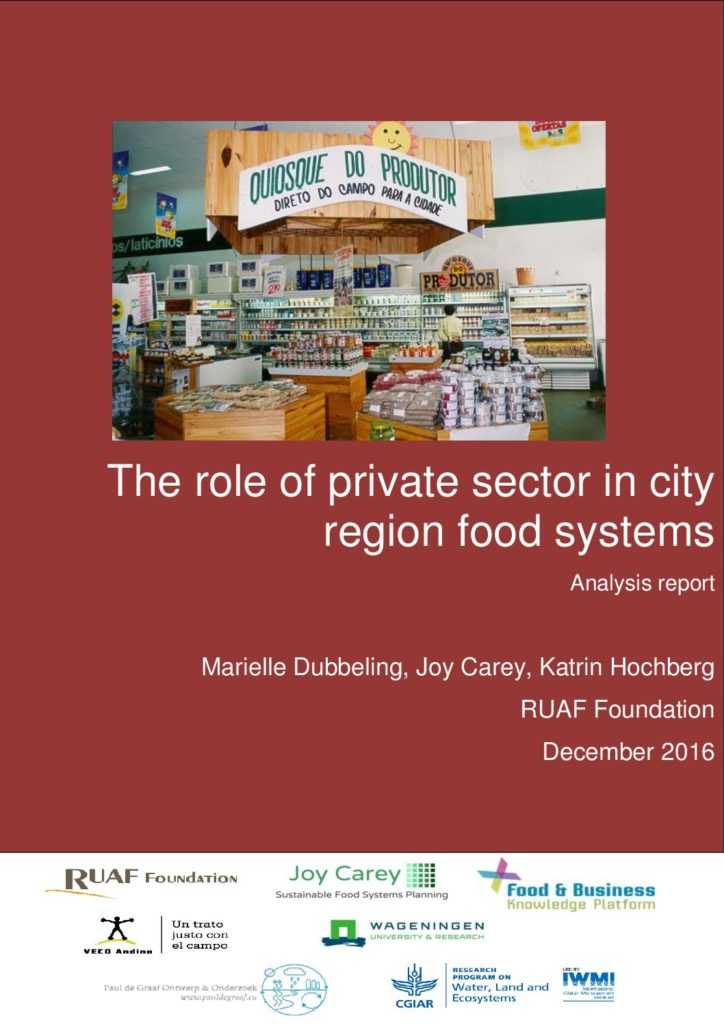Drivers for private sector engagement
Today, food security and the need for food governance, increasingly feature on the agenda of cities and city regions. It is recognised that urban growth and increasing urban poverty, food price hikes and climate change, changes in consumption patterns and the increase in diet-related health problems, all call for increasing attention to how cities and their inhabitants are fed. It is also understood that urban growth is directly related to increased demand for natural resources (land and water) that provide vital food and ecosystem services and that integrated territorial development and balanced urban-rural linkages have to be pursued for the benefit of the urban and rural population alike. In this context, city region food system development will need to go hand in hand with enhancing sustainability of more distant value chains to the benefits of smallholder producers and urban consumers.
Private sector actors have the potential to contribute to more sustainable city region food systems (CRFS), but up-to-date information on their role and initiatives is scarce. Little is known about their drivers for engagement, the extent and type of impact of their interventions, their needs for support and enabling policy environments. This study sought to better analyse the role of the private sector in building more sustainable city region food systems.
Focus of the study
The report provides suggestions for private sector actors, policy support mechanisms, and identifies key lessons learned. The two overarching questions addressed in this study are:
- How can the private sector help shape more sustainable city region food systems?
- What business and policy environment is needed to better engage the private sector in building sustainable city region food systems?
City case studies, literature review, concept development
Moreover, the study entails 3 city region case studies (Bristol, UK; Rotterdam, The Netherlands; Quito Metropolitan District, Ecuador) 19 smaller case studies featuring private sector and government interventions, and a complementary literature and online review, this study gives an overview of:
- The type of private sector that is currently engaged in building more sustainable and resilient CRFS
- Current private sector roles and innovations
- Drivers for increased engagement from private sector players
- The support needs to increase existing or new private sector engagement
- Recommendations for the private sector
- Policy recommendations to support private sector participation and innovations.
Further, the report explores the concept of a sustainable and resilient city region food system and addresses some issues in need of further exploration. This study serves as a starting point for enhancing private sector engagement and putting in place (support) mechanisms to build more sustainable and resilient city region food systems in different city regions.
You can also download the policy brief of this report.

